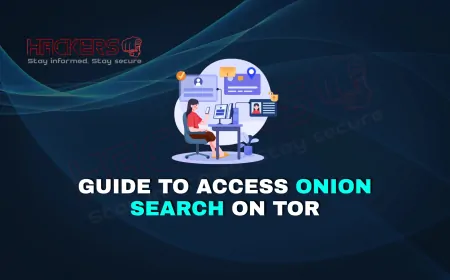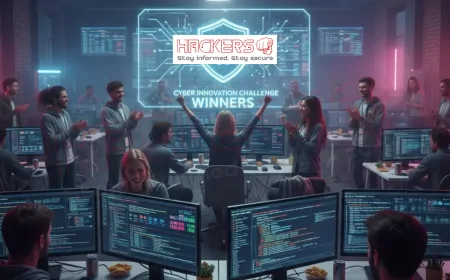Why Linux Security Skills From RHCE/RHCSA Are in High Demand
Imagine being the guardian of a digital fortress, where every server holds critical data that hackers are desperate to breach. In 2025, with cyber threats like ransomware, phishing, and zero-day exploits hitting headlines daily, the demand for skilled professionals who can secure Linux systems is skyrocketing. Enter the Red Hat Certified System Administrator (RHCSA) and Red Hat Certified Engineer (RHCE) certifications—two powerhouses that equip you with Linux security skills to protect these digital strongholds. Linux powers most of the world’s servers, clouds, and security tools, making it a cornerstone of cybersecurity. In this blog, we’ll explore why RHCSA and RHCE skills are so sought-after, breaking it down in simple terms for beginners and IT pros alike. From securing servers to meeting industry demands, you’ll see why these certifications are your ticket to a thriving career. Let’s dive in!

Table of Contents
- What Are RHCSA and RHCE?
- Why Linux is Critical for Cybersecurity
- RHCSA Security Skills Driving Demand
- RHCE Security Skills Driving Demand
- Industries and Trends Fueling Demand
- RHCSA vs. RHCE: Security Skill Levels
- Career Benefits of RHCSA/RHCE
- Why Choose Webasha for the Course
- Conclusion
- FAQs
What Are RHCSA and RHCE?
The Red Hat Certified System Administrator (RHCSA) and Red Hat Certified Engineer (RHCE) are certifications from Red Hat, a leader in open-source software. They focus on managing Red Hat Enterprise Linux (RHEL), a robust operating system used in servers and clouds worldwide. Linux, unlike Windows, is open-source, meaning its code is freely customizable, making it a favorite for secure, scalable systems.
RHCSA is the entry-level cert, teaching basics like user management, file permissions, and firewall setup through the hands-on EX200 exam. It’s perfect for beginners with some IT knowledge, requiring you to perform real tasks like securing user accounts. RHCE builds on this, diving into advanced skills like automation with Ansible and complex networking via the EX294 exam. It assumes RHCSA knowledge, targeting pros ready for enterprise challenges. For details, check this RHCSA course guide and this RHCE exam guide from Webasha.
Both certs last three years and are highly valued in cybersecurity for their practical focus on securing Linux systems, a skill in massive demand as companies battle evolving threats.
Why Linux is Critical for Cybersecurity
Linux is the backbone of modern IT, running over 70% of web servers, most cloud platforms like AWS, and security tools like Kali Linux. Its open-source nature allows for deep customization and strong security features, but only if you know how to use them. Misconfigured Linux systems are a common entry point for hackers, making skilled admins essential.
In 2025, cybersecurity faces challenges like ransomware, which locks data for ransom, and zero-day exploits, which target unpatched flaws. Linux’s role in clouds, servers, and IoT devices makes it a prime target. RHCSA and RHCE teach you to secure these systems, from locking down access to automating defenses, meeting the growing need for Linux-savvy security pros.
RHCSA Security Skills Driving Demand
RHCSA lays the foundation for Linux security, teaching skills that are in high demand for entry-level cybersecurity roles. Here’s how:
- User and Group Management: Create secure accounts and limit access, preventing unauthorized logins or insider threats.
- File Permissions: Use
chmodandchownto restrict file access, following the “least privilege” principle to limit damage from compromised accounts. - SELinux Basics: Configure Security-Enhanced Linux to restrict process actions, stopping malware from escalating privileges.
- Firewall Setup: Use
firewalldto block unnecessary network traffic, like closing unused ports to thwart hackers. - Software Updates: Apply patches with
dnfto fix vulnerabilities, a critical task as unpatched systems are top targets. - Log Monitoring: Check logs like
/var/log/securefor suspicious activity, enabling early threat detection.
These skills address common vulnerabilities, making RHCSA holders valuable for securing servers in small businesses or large enterprises. For real-world insights, read this RHCSA success story.
RHCE Security Skills Driving Demand
RHCE takes security to the enterprise level, teaching advanced skills that are highly sought-after in 2025’s complex threat landscape:
- Automation with Ansible: Automate security tasks like firewall rules or SELinux policies across hundreds of servers, ensuring consistency and speed.
- Advanced SELinux: Customize policies with
semanageoraudit2allow, preventing sophisticated exploits in large systems. - Complex Firewalls: Configure
firewalldwith rich rules oriptablesfor precise traffic control, blocking attacks like DoS. - Scripting: Write Bash scripts to automate monitoring or incident response, speeding up reactions to threats.
- Virtualization and Containers: Use
Podmanto isolate applications, containing breaches if one component is compromised. - High Availability: Set up clustering to keep systems running during attacks, ensuring business continuity.
RHCE’s focus on automation and scalability makes it ideal for large organizations, where manual security is impractical. For more, see this RHCE success story.
Industries and Trends Fueling Demand
Linux security skills from RHCSA and RHCE are in demand across various sectors in 2025:
- Cloud Computing: AWS, Azure, and Google Cloud rely on Linux, needing admins to secure cloud servers.
- Finance: Banks use Linux for secure transactions, requiring compliance with standards like PCI-DSS.
- Healthcare: Linux systems store sensitive patient data, demanding robust security.
- Tech and IT Services: Companies like IBM need Linux experts for client projects.
- Telecom: 5G networks use Linux for infrastructure, requiring secure configurations.
Trends like AI integration, remote work, and hybrid cloud environments amplify demand. The global cybersecurity market is growing, with a shortage of skilled Linux pros pushing salaries higher. For career scope, check this Red Hat career guide.
RHCSA vs. RHCE: Security Skill Levels
Here’s how RHCSA and RHCE compare for security skills:
| Aspect | RHCSA | RHCE |
|---|---|---|
| Level | Beginner to Intermediate | Advanced |
| Security Focus | Basic: permissions, firewalls, SELinux | Advanced: automation, complex firewalls |
| Prerequisites | Basic IT knowledge | RHCSA or equivalent |
| Job Roles | Junior admin, security analyst | Security engineer, DevSecOps |
| Exam Style | Hands-on, 2.5 hours | Hands-on, 3.5 hours |
RHCSA is the starting point, while RHCE scales up for enterprise security. Both are in demand, but RHCE targets advanced roles.
Career Benefits of RHCSA/RHCE
These certifications offer significant career advantages:
- High Salaries: RHCSA holders earn $80,000-$100,000 in the US, ₹4-8 LPA in India; RHCE boosts this to $100,000-$120,000 or ₹8-20 LPA.
- Job Opportunities: Roles like Linux Admin, Security Analyst (RHCSA), or Security Engineer, Cloud Architect (RHCE).
- Global Recognition: Red Hat certifications are respected worldwide.
- Skill Versatility: Apply skills to clouds, servers, or security tools like Kali Linux.
- Career Progression: Start with RHCSA, move to RHCE, then aim for Red Hat Certified Architect.
These benefits make RHCSA and RHCE hot commodities in cybersecurity. For tips, see this RHCSA exam tips blog.
Why Choose Webasha for the Course
Mastering RHCSA or RHCE requires top-tier training, and Webasha Technologies delivers. Based in India, Webasha has trained thousands with hands-on courses tailored to Red Hat exams. Their expert instructors break down complex topics like SELinux and Ansible, making them accessible for all levels.
Webasha offers flexible learning—online, classroom, or bootcamps—plus affordable fees and job placement support. Their labs mimic real exams, ensuring you’re ready to secure systems. For prep strategies, check their RHCE exam tips blog. Webasha is your go-to for building in-demand Linux security skills.
Conclusion
RHCSA and RHCE certifications are in high demand because they deliver critical Linux security skills for 2025’s cyber landscape. From RHCSA’s foundational tools like permissions and firewalls to RHCE’s advanced automation and networking, these certs prepare you to secure servers and clouds against sophisticated threats. Industries like cloud computing and finance are desperate for these skills, offering lucrative careers and global opportunities. Whether you’re starting out or aiming for advanced roles, RHCSA and RHCE are your path to success. Ready to meet the demand? A course with Webasha can get you certified and job-ready.
FAQs
What is RHCSA?
RHCSA is an entry-level certification teaching Linux administration, including basic security skills.
What is RHCE?
RHCE is an advanced certification focusing on automation, networking, and enterprise security.
Why is Linux key in cybersecurity?
Linux powers most servers and clouds, requiring strong security skills to protect them.
What security skills does RHCSA teach?
User management, permissions, SELinux, firewalls, and log monitoring.
What security skills does RHCE add?
Automation with Ansible, advanced SELinux, complex firewalls, and scripting.
Why are RHCSA/RHCE in demand?
They address the growing need for Linux security in clouds, finance, and tech.
Is RHCSA beginner-friendly?
Yes, it’s designed for those with basic IT knowledge.
Does RHCE require RHCSA?
Yes, RHCSA or equivalent experience is needed.
What jobs use RHCSA skills?
Linux Admin, Junior Security Analyst, IT Support roles.
What jobs use RHCE skills?
Security Engineer, DevSecOps, Cloud Architect.
How much do RHCSA holders earn?
$80,000-$100,000 in the US, ₹4-8 LPA in India.
What’s the salary for RHCE?
$100,000-$120,000 in the US, ₹8-20 LPA in India.
Are these certs recognized globally?
Yes, Red Hat certifications are valued worldwide.
Do RHCSA/RHCE expire?
Yes, after three years; renew via exams or credits.
Can RHCSA lead to RHCE?
Yes, it’s the natural progression for advanced skills.
Why is automation important in RHCE?
It ensures consistent, rapid security across large systems.
Can these skills secure cloud systems?
Yes, they apply to Linux-based clouds like AWS.
Is the RHCE exam hands-on?
Yes, it tests real tasks like automating security policies.
Which industries need these skills?
Cloud, finance, healthcare, tech, and telecom.
Why choose Webasha for RHCSA/RHCE?
Webasha offers hands-on training, expert instructors, and job support.
What's Your Reaction?










































































